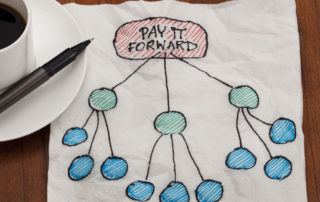Taking Risks
There is a common misconception that taking risks is … well, risky. But the truth is that taking risks is no more risky than playing it safe, or maintaining the status quo. In fact, often by failing to innovate, make changes and move forward in different areas of our lives, we open ourselves up to the possibility of stagnation and falling behind. It’s all perception. How we see ourselves, our lives, our world, our intimate relationships with the countless circumstances that surround us, determines how we make decisions and choices. And often our perceptions of reality do not match the truth of reality. For example, statistically speaking, you are far less likely to be injured in an airplane than in an automobile, by almost 100 to one. Cars are far more dangerous. Think about it. How many people do you personally know that have been injured or killed in a plane crash? Not in newspaper reports you’ve read, but people you actually know. Now how many people do you know who have been injured or killed in a car accident? Point made. Yet many people feel apprehensive about taking a plane trip, and these same people feel no apprehension whatsoever about a car ride. Their perceptions and fears do not match the reality of the situation. This happens in our lives more than we would care to realize. Another common misconception that many people have is that life just arbitrarily happens to us without cause or reason. “While some of it we may have control over” they argue, “most of it is just luck.” Mind Power students of course would find this notion incredulous, yet, amazingly, most people believe it. If this hypothesis is true and everything is just a matter of luck, then choice and decision are a meaningless exercise. Those people who think in terms of good luck and bad luck are obscuring the truth, because they separate events from their causes. When we say that someone has fallen on bad luck, we relieve that person of any responsibility for what has happened. When we say that someone has had good luck, we deny that person credit for the effort and choices they have made that undoubtedly have led to the happy outcome. The question becomes what is luck, and what is cause and effect? Canadian essayist Stephen Leacock once wrote, “I’m a great believer in luck. Amazingly the harder I work, the more of it I seem to have.” A. J. Foyt, five-time winner of the Indianapolis 500 said it another way, “Luck is when opportunity meets preparation.” There is very little “luck” in our lives as we understand the term. Synchronicity yes, but luck isolated from cause and effect, no. True, many of the causes behind events are beyond our perceptions and understanding, but the vibrating matrix that we live in is governed by laws of cause and effect. We are on far more solid ground when we look to ourselves for an understanding of [...]






